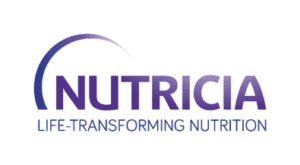On average an African drinks about 6.15 litres of pure alcohol each year, about half of what a European consumes. However, more than 25 per cent of Africans are binge drinkers, the highest proportion in the world, according to a WHO report.
Most African countries already have laws that prohibit underage drinking and drink driving, but critics say these are poorly enforced and often completely ignored.
South Africa is crafting a new law to restrict alcohol advertising, raise the minimum drinking age to 21 from 18 and get tougher on drunk driving, Minister of Social Development Bathabile Dlamini has said.
The bill would also propose warning labels on alcohol containers, raising taxes and stricter licensing laws for alcohol outlets, said a government official who declined to be identified because the bill has not yet been made public.
The bill will be discussed in South Africa’s cabinet in the next few weeks before its release for public comment, the official said.
In Kenya authorities are also looking to raise the legal drinking age to 21 from 18, following on from a 2010 law that banned alcohol sales in grocery stores and in bars before 5 p.m.
The Mututho law, named after the legislator who crafted it, John Mututho, is credited for a 90 per cent drop in alcohol-related deaths in Kenya.
Earlier this year, Zambia banned the manufacture and sale of spirits in relatively cheap small plastic sachets, which it blamed for increasing alcohol abuse by young people. Zambia’s health department secretary told Reuters that alcohol-related road accidents and health problems are increasingly a concern.
In Nigeria, Africa’s most populous nation and a huge beer market, alcohol regulation does exist but critics say it is loosely enforced.
Adeline Osakwe, deputy director at the Nigeria Food and Drug Administration, said the country ensures consumers are aware of alcohol content through product labelling. It also regulates alcohol advertising.
For years, poor Africans were limited to home-brew sorghum or maize beer, sometimes made with dangerous ingredients such as battery acid to increase the potency.
Commercial alcohol is now widely available in most African states and premium brands such as Johnny Walker whisky or Heineken beer are increasingly in reach of the average drinker.
Rising incomes have also encouraged conspicuous consumption of premium brands. Even in Worcester’s gritty nightclubs, some tables are weighed down by bottles of pricey spirits such Scotch whiskies Chivas Regal and Glenfiddich.
Drinks companies say commercially produced alcohol is safer than home-brews. “The alternative is that lower income people who wish to consume liquor will buy illicit and potentially dangerous alcohol,” said Vincent Maphai, executive director of Corporate Affairs at SABMiller’s South African unit.
SABMiller is already offering lower priced beer in order to win over drinkers from the home-brew market, which it says is about four times the $11-billion commercial market.
Higher alcohol taxes, which the South African bill is likely to impose, risk of pushing the poor back to potentially lethal home-brews. Nevertheless, public health officials say governments need to do more to warn about the dangers of alcohol abuse.


